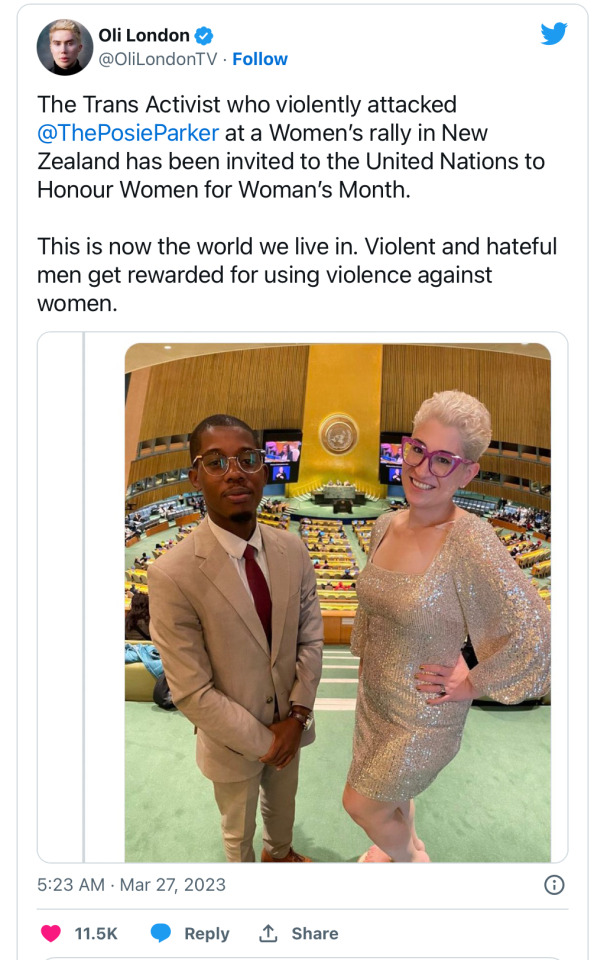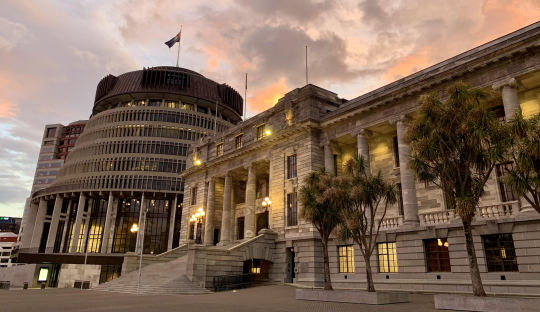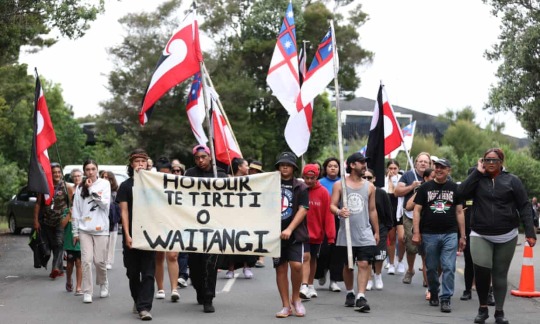#new zealand law
Text

Kiwi Griffin~
Yes, you'll still be arrested if you grab it.
And be laughed at by the internet if you film yourself doing so, even if you are 'one with nature,' doesn't mean it has to like you!
113 notes
·
View notes
Text
Loki surveilling the skyline of New York from the top of Stark Tower and clocking that his favorite paired set of buildings are gone. sad
#everyone wants thor and loki to have visited earth a bunch of times and obviously they wouldn't be too invested in earth politics#but i think the concept of much time passing between visits should be taken advantage of#like what if one of them missed seeing the statue of liberty on their past 3 visits and now that's 'suddenly' a famous historic landmark#Loki like wow I sure hope that restaurant in the Soviet Union is still around!#and Natasha's head whips around so fast like you mean Russia or one of the surrounding countries that used to be part of the USSR#Loki: uhm. well. what's the difference#Natasha: here is a map of the countries does this help#Loki: it does not help but thank you for trying#Thor: what do you mean Rome is gone???? Rome was HUGE?????#Tony: well it's been a few centuries since then Europe is very different now#Thor: (visibly distressed) so the the sweet effeminate men enjoy the streets no more??#Tony: ...I don't keep track of foreign border laws about that#Thor shows up after 3 years and there's a new president and he's very confused through the entire meeting#brodinsons being so detached from the political scene but being so used to realm politics they come to correct conclusions about things#even though the timeline and how long things stay the same on midgard still messes with them#Loki: at least Egypt is still around#Thor: China also#Brodinsons visiting New Zealand(Aotearoa)/Australia/various British mandate islands before the British formally showed up#returning 2 centuries later and 'the gene pool has altered drastically' 'must've been a war'#well it's either that or since Asgard seems spared of colorism they treat all humans as the same and don't notice. which might be worse#on the colonisation and liberation side of things
23 notes
·
View notes
Text
Does this guy have citizenship in New Zealand? Would this impact this guys chances of gaining citizenship?
The trans activist at the center of controversy after assaulting English women’s rights advocate Kellie-Jay Keen in Auckland, New Zealand, is a representative for the United Nations who was invited to speak at the UN on International Women’s Day, March 8, a revelation that is now beginning to circulate on social media.
Eliana Rubashkyn, also known as Eliana Golberstein and Eliana Rubinstein, is a male who identifies as transgender and intersex, and uses “they/them” pronouns. Rubashkyn is originally Jewish-Ukrainian from Colombia, but currently lives in New Zealand. He has worked with the UN as a Program Officer at ILGA World (the International Lesbian, Gay, Bisexual, Trans, and Intersex Association).
Rubashkyn boasted about assaulting women’s rights campaigner Kellie-Jay Keen on March 25 during what was supposed to be a peaceful women’s rights demonstration. Keen, also known by her moniker Posie Parker, had arranged for a speaking tour of New Zealand centered around giving women the platform to express their thoughts on gender ideology. But Keen was forced to cut the tour short after being met with extreme aggression at her first stop in Auckland.
As Keen stood in the rotunda at Albert Park in central Auckland, where the event was scheduled to be held, a mob of trans activists broke through the barriers. With no police in sight, Keen began to express concern about the safety of herself and her supporters as she streamed live on YouTube.
Among the hoard of trans activists was Rubashkyn, who had managed to get inside the bandstand by lying about his identity. As Keen approached, he then dumped a liter of tomato juice onto her and her security. Videos of the incident have since circulated on social media, and Rubashkyn told a local news station that he was able to approach Keen because he lied about his identity, and “they were not thinking that I am a trans person, because I’m intersex and trans but they can’t tell.”
In a statement on the act, Rubashkyn claimed that he targeted Keen because “her words are blood because they are killing our people.” He continued: “That tomato juice represents the blood of the people she is trying to kill.”
The last murder of a transgender person in New Zealand was in 2018. Zenith Campbell was murdered by Paddy Woods, his long-time boyfriend. Since Campbell’s death, however, two transgender New Zealanders have been charged with violent crimes — one of whom tortured a young girl to death.
On social media, Rubashkyn boasted of the attack on Keen, leading many women’s rights advocates to hone in on his Twitter feed.
The images of Rubashkyn at the United Nations were first revealed by women’s rights advocates, and then quickly shared by popular detransitioner Oli London,.

While many were shocked by Rubashkyn’s presence at the United Nations on International Women’s Day, his connections with the intergovernmental organization date back years.
While a student studying at the Taipei Medical University in September of 2013, Rubashkyn visited Hong Kong to update his passport. He had begun taking estrogen the year prior and wanted to update his photograph, but the Colombian consulate in Hong Kong was the closest place he could do it.
After arriving in Hong Kong, Rubashkyn claims he was subjected to mistreatment by the Hong Kong border authorities, and contacted the UN High Commissioner for Refugees through Amnesty International. The High Commissioner provided Rubashkyn protection under the stipulation he surrender his passport, at which point he was allowed to enter the country.
Without a passport, Rubashkyn became a stateless person, and was effectively stuck in Hong Kong for several months where he faced deportation back to Colombia. While in Hong Kong, Rubashkyn fought to have his legal gender marker changed to “female” in contravention of Hong Kong law, which stipulated that a person must go through genital alteration prior to being legally recognized as the opposite sex. In April of 2014, with the assistance of the United Nations, he became the first transgender person to be recognized as his self-declared “gender” in Hong Kong despite not having undergone any surgeries.
By late 2014, Rubashkyn had been moved to New Zealand where he then fought for refugee status and was granted asylum in May of 2014. The next year, he paid for his Israeli boyfriend to meet him in Auckland where the two married while Rubashkyn studied at a local university.
According to his LinkedIn, Rubashkyn currently works as a pharmacist, and he is also a Gender Identity, Gender Expression and Sex Characteristics Officer with the International Lesbian, Gay, Bisexual, Trans, and Intersex Association via the United Nations.
It is currently unclear what actions, if any, will be taken against Rubashkyn for his attack on Kellie-Jay Keen during the March 25 demonstration. According to the New Zealand Crimes Act 1961, Rubashkyn may have committed assault when he threw tomato juice on Keen and her security guard. The legal definition of assault is very broad in New Zealand, covering any situation where an individual directly or indirectly applies force against another person’s body. Community Law New Zealandnotes that this “includes when you do this indirectly – by throwing something for example.”
But despite Rubashkyn admitting to the act, the Prime Minister of New Zealand has refused to state whether any assaults committed during the Let Women Speak demonstration will be properly investigated by police.

During a press conference today, The Platform reporter Sean Plunket asked PM Chris Hipkins if he could give “general assurance” that justice would be pursued.
“Those are matters for the commissioner of police,” Hipkins responded curtly, re-stating the line when pressed further.
By Genevieve Gluck
Genevieve is the Co-Founder of Reduxx, and the outlet's Chief Investigative Journalist with a focused interest in pornography, sexual predators, and fetish subcultures. She is the creator of the podcast Women's Voices, which features news commentary and interviews regarding women's rights.
Of all people they could have quoted why did it have to be Oli London? Couldn’t they find a detransitioned person with less controversy?
#New zealand#united nations#international women’s day#Eliana Rubashkyn is a man#ILGA World (the international lesbian gay bisexual trans and intersex association)#The last trans identified man murdered in New Zealand was back in 2018 and he was killed by another man#The UN already helped this guy get around laws in Hong Kong
74 notes
·
View notes
Text
i’m so fucking keen for bora to sink its teeth into whatever transphobic bill nzact manage to pass, if they even get it through parliament. like god i hope it gets stopped before then but i’ve been defending bora from right wing assholes trying to undermine it and how fucking amazing it is.
the beauty of it is that it makes it so nzact will have to consider precisely the intention of every way the bill can play out on the floor, in hansard (written record admissible in courts). if they don’t, the courts will find it inconsistent with bora and send it back to parliament, or nullify the application of it entirely.
nzact can’t do squat without hanging themselves from the political noose. the media have business bias but they have a left wing interest too and they will not let this go. the only chance this gets through is if this gets drowned out in the noise.
#btw guys just a side note#don’t let them turn this into a class war? yeah?#like solidarity and all that?#nzpol#nz politics#nzpolitics#New Zealand#nz#BORA#law#is there like a legal fandom?#because if you can be a fangirl for a piece of legislation that is me#act party#politics#world politics
13 notes
·
View notes
Text

Sunset, Karikari Peninsula, New Zealand. 16th December 2023
#New Zealand#sunset#while I was taking this my father-in-law was like 'not a very good sunset tonight sorry'
11 notes
·
View notes
Text
#सत_भक्ति_संदेश

धर्म
हम सब जीव हैं। मानव शरीर मिला है। हिन्दू, मुस्लिम, सिक्ख तथा ईसाई सब मानव हैं। इसलिए
🕉☪️✝️☦️
हम सबका एक मानव धर्म है।
मानवता (इंसानियत) कर्म है। इस कारण से कोई भिन्न धर्म नहीं है। पूरी पृथ्वी के मानव (स्त्री-पुरूष) एक खुदा (प्रभु) के बच्चे है
#santrampalji is trueguru#kabir is supreme god#sant rampalji maharaj app#kabir is real god#america#india#right way of worship#kabirgod#australia#supremegod#best law college in haryana#lord kabir#life#world#worldwide#quotes#russian#canada#new delhi#new zealand#nepal#new york
7 notes
·
View notes
Text
Sian Elias
youtube
Sian Elias was born in London in 1949. In 1970, Elias graduated from Auckland University and was admitted to the New Zealand Bar. In 1988, she was appointed Queen's Counsel. Elias was appointed to New Zealand's High Court in 1995, and in 1999, she became the first woman to be appointed Chief Justice of New Zealand. She retired in 2019, and was the third longest-serving Chief Justice since the creation of the office in 1842.
4 notes
·
View notes
Text
What is genocide?
This post will be explaining the notion of genocide.
I. International law and the definition of genocide
The rules on genocide are part of international law. International law is the body of rules and customs that cover relations between States.
The 1948 Genocide Convention
One source of international law is conventions, also called treaties. International conventions are binding agreements between States. Binding, meaning it gives them obligations (things they must do).
The definition of genocide can be found in the 1948 Genocide Convention. This definition is repeated in the statutes of various international criminal courts, like the International Criminal Tribunal for Rwanda (ICTR), and the International Criminal Court (ICC). These statutes cover what the courts’ jurisdiction (what kinds of disputes they can rule on, the subject matter, and who can submit disputes).
For some information on the history of the concept of genocide before the 1948, see the United Nations Office on Genocide Prevention and the Responsibility to Protect under “background”.
Genocide and customary international law
However, genocide has a unique status in international law. Because genocide is such a serious thing, the Convention rules on genocide have the status of ‘jus cogens norms’ . Jus cogens norms are also called ‘peremptory norms’. These are fundamental rules of behaviour between states that are so vital that they can’t be broken, or have any exceptions. They always apply, to all States automatically.
So, the Genocide Convention are jus cogens rules. Note: key states that have signed/ratified this convention are:
Australia (1949)
Israel (1950)
Canada (1950)
The UK (1970)
New Zealand (1978)
The USA (1984)
Because these rules about Genocide are in a convention, they apply to those who signed up to it.
But because they are also jus cogens, they apply to even to those States who haven’t signed up to the convention. This is why the rules on genocide can also be considered part of ‘customary international law’. This is international law that comes about due to custom (the way states behave + that underpinning this behaviour idea they are acting in accordance with law)
II. What does the 1948 Genocide Convention say?
The 1948 Genocide Convention states :
Genocide is a crime under international law and States must prevent and punish it.
Article 1: The Contracting Parties [states that signed up to the Convention] confirm that genocide, whether committed in time of peace or in time of war, is a crime under international law which they undertake to prevent and to punish.
The ICJ has added that this obligation also means:
States must not commit genocide: “the obligation to prevent genocide necessarily implies the prohibition of the commission of genocide.”
The obligation to prevent and punish genocide applies even outside the borders of the State (extraterritorially), since: “the rights and obligations enshrined by the Convention are rights and obligations erga omnes [owed to everyone].”
2. Genocide is committing certain acts [physical element] with the intent to wholly or partially destroy a people [mental element]
Article 2: In the present Convention, genocide means any of the following acts committed with intent to destroy, in whole or in part, a national, ethnical, racial or religious group, as such:
Killing members of the group
Causing serious bodily or mental harm to members of the group;
Deliberately inflicting on the group conditions of life calculated to bring about its physical destruction in whole or in part
Imposing measures intended to prevent births within the group;
Forcibly transferring children of the group to another group.
3. Anyone committing genocide is should be punished.
Article 3: The following acts shall be punishable:
Genocide
Conspiracy to commit genocide
Direct and public incitement to commit genocide
Attempt to commit genocide
Complicity in genocide.
Article 4: or any of the acts in Article 3 (i.e. conspiracy, incitement, attempt, complicity) shall be punished. This includes “constitutionally responsible rulers, public officials or private individuals.”
III. What must other countries do if there is genocide? The obligations of the international community
The 1948 convention goes on to give the international community obligations. The convention would be powerless if it just criminalised genocide without also forcing States to prevent and punish it. Remember, Article 1 says genocide is a “crime under international which they [the Contracting Parties] undertake to prevent and punish”.
Further obligations are spelled out in the rest of the convention, but the 3 main are [paraphrased
Obligation to legislate against genocide
Article 5: States must make laws that give the genocide convention an effect within their own legal systems.
Obligation to punish genocide effectively
Article 5: States must also provide effective penalties (punishments) for people who are guilty of genocide or doing any of the acts in article 3 (i.e. conspiracy, incitement, attempt, complicity)
Obligation to try those charged with genocide in a court
Article 6: people charged with genocide or the acts in article 3 (conspiracy, incitement, attempt, complicity) should be tried in a State court or an international criminal court that has jurisdiction
#genocide#international law#human rights#human rights law#long post#israel#america#canada#australia#new zealand
4 notes
·
View notes
Text
cannot tell you how much I hate the hobbit trilogy I hope everyone in those movies get put in a blender especially Legolas can't believe what they did to him
#watching a video about them and the stuff it did to laws in New Zealand#im a hater trough and trough#also the girl elf suck ass#just make one of the dwarfs women#you weak asshole
26 notes
·
View notes
Text
my coworker made some earl grey infused vodka for me 🥺
#he’s my older man coworker whose fav sports team is a women’s cricket team from New Zealand who just got his 1st tattoo there#& lives with his cat and adult daughter and son in law#WE LOVE GEOFFREY
5 notes
·
View notes
Text
im so glad i went to the library in the city today i got so many good books out
#i got a collection of toni morrisons essays speeches and mediations (im loving it so far she has a skill with words like no other)#the part one of a collection of ursula le guins sf short stories#a book on the history of antiracism protests and how to move forward#and a collection of essays in one book all on the subject of indigenous law (which i did a special english course on in the summer)#it introduced me to my favourite author and my favourite new zealand author and widened my reading scope massively
3 notes
·
View notes
Text
i think every show should have madeleine sami <3
4 notes
·
View notes
Text
Watch "Whakaari/White Island eruption: Owners 'never bothered to understand risks' - WorkSafe | Newshub" on YouTube
youtube
The prosecutions over the loss of life during the 2019 Whakaari White Island volcanic eruption have begun.
#new zealand#nz#aotearoa#news#nz news#whakaari#whakaari white island#white island#2019 eruption#2023#law#court case#prosecutions#Youtube
5 notes
·
View notes
Text
The Coalition Government will do more harm than good
The Coalition Government (National, ACT, and NZ First) is rallying for catastrophic legislative and social change in Aotearoa New Zealand. Here's two examples of how:
Lawmaking under urgency

Ever since their 2023 win, the Coalition Government have promised (and recently completed) an intense 100-day plan that focuses on objectives over a wide range of areas, including: education, health, employment, and justice. However, much of these legal changes were established under urgency.
Under urgency refers to an action wherein a Government is able to forego the usual lawmaking norms by either shortening the time for debate on legislation or skip over the submission of public views on proposed bills.
On 8 March, 2024, Marc Daalder (a senior political journalist based in Wellington) reported that the Coalition Government have set a new record for "laws passed under urgency in first 100 days." Only days later, on 12 March, 2024, it was confirmed that the Coalition Government has passed a total of 14 bills in seven weeks under urgency. The average is 10 bills over an entire term.
Here is a list of some of the bills the Coalition Government have passed under urgency (as of December, 2023). Including the repeal of the Fair Pay Agreement—a bill that aimed to protect employees by ensuring that unions and workplace associations could fairly "negotiate terms and conditions for all covered employees in an industry or occupation."
Undeniably, the use of urgency this frequently is not normal.
Lawmaking in Aotearoa NZ is supposed to be a months-long process (sometimes even years) wherein bills are debated and challenged. While certainly not the most time-effective, our lawmaking norms ensure proposals have been considered from numerous perspectives. By eliminating this process, the Coalition Government has introduced a plethora of laws that lack the critical insight of our wider parliament—and have proven that their 100-day plan was completely unachievable within the boundaries of our usual democratic processes.
Te Tiriti o Waitangi

Under the Labour Government (and even, in part, the John Key National Government) race relations between Māori and Pākehā have improved considerably. The gradual integration of Te Reo Māori (the Māori language) and te Ao Māori (the Māori worldview) into education, healthcare, government departments, and public signage have broadened the scope of tolerance, understanding, and empathy between our two peoples. For the first time in centuries, many Māori (myself, included) felt as though we were seeing positive change across all areas of our livelihoods.
However, Coalition leaders David Seymour and Winston Peters have other ideas.
In November, 2023, RNZ reported that Te Tiriti o Waitangi/Treaty of Waitangi will come under review. In particular, how the Treaty's principles are interpreted and integrated into legislation. And despite its many flaws, Te Tiriti is one of the few constitutional documents in the world that promotes partnership and collaboration between an indigenous community and the descendants of European settlers—or as we know it: co-governance. However, this proposed review is looking to eliminate co-governance outright, and override the Treaty with a Treaty Principles Bill. Below are the new principles the Coalition Government (ACT, in particular) would introduce instead:
All citizens of New Zealand have the same political rights and duties
All political authority comes from the people by democratic means
New Zealand is a multi-ethnic liberal democracy where discrimination based on ethnicity is illegal
Although seemingly innocent at a first glance, ACT's proposal is problematic in two major ways.
Firstly, Te Tiriti and its current principles inform how the public service can support Māori citizens through legislation and policy. For example, the Waitangi Tribunal and select committee inquiries discovered that hegemonic health policies were "failing Māori." One of the reasons identified for this was because there was "no sufficient mechanism for Māori to systematically contribute to decisions about services and delivery." As a result, in 2022, the Labour Government established the Te Aka Whai Ora/Māori Health Authority. Te Aka Whai Ora was established with the intentions to improve Māori health outcomes by designing Māori-centric strategies and policies. However, now, we don't even have that.
Secondly, by reinterpreting the Treaty and removing the unique space Māori hold from the principles, the Coalition Government are effectively erasing all the historical grievances between Māori and Pākehā. We can't just pretend Parihaka, the 1975 Māori Land March, the Land Wars, and other similar conflicts didn't happen. Just as Māori have to take responsibility for the rampant violence within our own communities, Pākehā should not be shielded from the shameful violence their ancestors perpetrated against us. Yes, it's uncomfortable. Yes, it will challenge your worldview. But it happened. And whether we like it or not, we can't just forget. Forgetting leads to harmful cycles that are repeated over and over again.
Let us, as a country, learn from the mistakes of our ancestors.
#māori#new zealand#aotearoa#maori#coalition government#national#act#nz first#christopher luxon#david seymour#winston peters#te pati maori#the maori party#nz politics#indigenous peoples#indigenous#indigenous rights#laws#health#politics#education#the treaty of waitangi#te tiriti o waitangi
1 note
·
View note
Text
#criminal defense attorney#district attorney#extraordinary attorney woo#law#lawyer#personal injury attorney#new zealand#ace attorney#law of assumption
0 notes
Text
The Global Chessboard: A Witty Take on Free Speech, WHO's Moves, and the WEF Game
The Global Chessboard: A Witty Take on Free Speech, WHO's Moves, and the WEF Game
Ah, the world – a never-ending board game where the pieces are countries, and the players? Well, let’s just say they’re not always sitting at the table. In the latest turn of events, we’ve seen a flurry of moves that would make even a grandmaster scratch their head. Let’s dive into this ironic, twisted tale of global maneuvers, where the stakes are sovereignty, health, and yes, that ever-elusive…
youtube
View On WordPress
#2023#Australian Politics#Canada WHO Treaty#Chess Metaphor#Cultural Dynamics#Dutch Politics#Elon-Musk#Estonian Sovereignty#Free Speech#Geert Wilders#George Soros#Global Chessboard#Global Governance#Globalist Agenda#Health Diplomacy#International Law#International Relations#Media Matters#National Sovereignty#New Zealand Health Policy#Pharmaceutical Companies#Political Maneuvers#Political-Commentary#Political-Satire#Public Discourse#PVV#Satire#Sovereign States#United Australia Party#WHO Amendments
0 notes